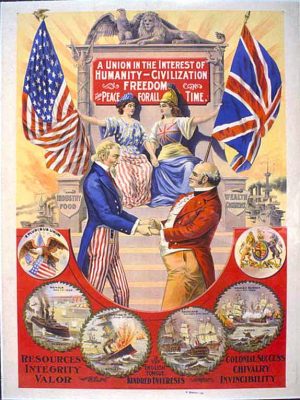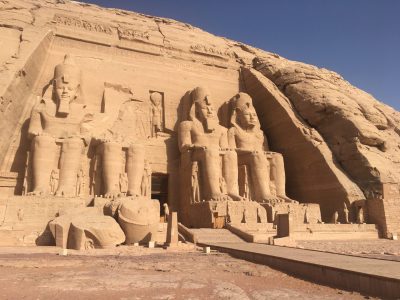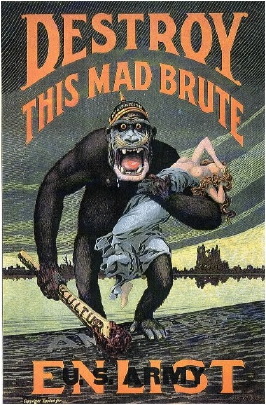
“Why Isn’t Harris Running Away with This?” is the provocative title of an op-ed piece by David Brooks (NYT, October 18, 2024, print). He wonders why the polls are so immobile. He notes the lack of a strategy by either political party to broaden its electoral reach. Deadlock is the new normal.
He suggests that political parties have replaced religious organizations in our secular age as the venue that provides believers with “meaning, membership and moral sanctification.” This makes the new priesthoods the (social-)media dispensers of truth.
One priesthood consists of the highly-educated urban progressives who work in academia, the media, and activist groups. But their world view is rejected by most Americans. By worldview, Brooks isn’t simply referring to international diplomacy but to domestic issues. This includes racial categories like diversity, equity, and inclusion that risks losing the support of working class people of all races. Or as I put it, there are more people proud to be American and part of We the People than the Woke Industrial Complex cares to admit.
In-other-words, there are a lot more Americans without college degrees than with one. Brooks observes that Trump would be winning by landslides if he combined MAGAs with real Republicans instead of alienating the latter. My contention has been if Republicans nominated an adult Lincoln-like person, they would win in a landslide over the Woke Industrial Complex and irrevocably alter the deadlock that now divides the country.
GAIL COLLINS AND BRET STEPHENS
A couple of days later these two had one of their conversations, “Harris Has an Unexpected Ally,” (NYT October 22, 2024, print) that addresses the question Brooks raised. In that conversation, Stephens addresses not Trump as much as he does Harris.
I fear that Harries is every bit as vacuous behind the scenes as she seems to be on the public stage. I fear she will be tested early by a foreign adversary and stumble badly, whether it’s in stopping Iran from building a nuclear weapon or China from blockading Taiwan or Russia from seizing a portion of a Baltic country. I fear she will capitulate too easily to her party’s left flank, especially when it comes to identity politics, economic policy or polarizing cultural issues.
Here is where it would have been beneficial to the newcomer to the national arena in a short campaign to deliver her State of the Union Address again and again outlining what she would do as President. Instead she delivers micro-addresses to micro audiences trying to move the battle lines inches in the battle ground states. She lost an opportunity to use the bully pulpit and to dare her opponent to deliver his own State of the Union instead of just trash talking.
I fear that she’ll have no domestic policy ideas that don’t involve mindlessly expanding the role of government. I fear she will surround herself with mediocre advisors, like her embarrassingly bad veep pick. I fear she won’t muster the political will to curb mass migration. And I fear that a failed Harris presidency will do more to turbo charge the far right in this country than to diminish it.
And this is from someone who will vote for Harris.
The picture Stephens paints is of someone who lacks the right stuff to go into the arena and with dire consequences for both the country and the Republican Party… and it would be even worse if her opponent won.
BRET STEPHENS
Stephens elaborates on his views a few days later (“If Trump Wins, Who, or What, Will Liberals Blame?, NYT October 25, 2024, print). He identifies a few root causes.
1. The Politics of Condescension – By now it has become a truism that the mentally and morally superior people, the visible saints, the elect of God, have only one way of communicating with lesser beings. It is to remind them that they are lesser beings and that they should be grateful of the opportunity afforded them to improve themselves by following the teachings of their superiors. This is dangerously close to the Confederate explanation of the benefits of slavery. How dare these lesser beings chose to reject the ways of the college and grad-school graduate people.
2. The politics of name-calling – This “happens every time Trump’s voters are told they are racists, misogynists, weird, phobic, low-information or, most recently, supporters of a fascist — and by implication, fascists themselves.” This is not a way to win over voters.
3. The politics of gaslighting – The double dosage of vouching for Biden’s mental acuity while extolling Harris as brilliant and experienced.
4. The politics of highhandedness – Harris didn’t win a single primary vote nor were any even held.
5. The politics of Pollyanna – “Wouldn’t it be better to meet voter concerns rather than tell them they‘re seeing ghosts?”
6. The politics of identity over class- The Democrats are increasingly forsaking their working-class roots.
In just a few days we will know the extent of that abandonment and its consequences.
HERE’S WHY DEMOCRATS SHOULDN’T DEMEAN TRUMP VOTERS
Nicholas Kristoff issued this caution to Democrats (NYT, September 1, 2024, print).
… too often since 2016, the liberal impulse has been to demonize anyone at all sympathetic to Donald Trump as a racist and bigot….it’s difficult to win votes from people you are disparaging.
Kristoff turns the tables on the elitists.
It has also seemed to me morally offensive, particularly when well-educated and successful elites are scorning disadvantaged, working class Americans who have been left behind economically and socially and in many cases are dying young. They deserve empathy, not insults…
The social fabric in many blue-collar communities has unraveled, and people are angry and frustrated.
Condescension is a losing strategy in a population of non-college-educated believers.
Where is the party of Franklin Delano Roosevelt today?
So to return to the question of David Brooks which began this blog, things have not worked out as the Democrats expected. There was no blue wave due to the changing demographics. Abortion will work as a defining issue but only up to a point. The biggest ace in the hole Democrats have is Donald Trump himself. The more off-rails the immature child with the maturity of a three-year old behaves, the more likely some people who are only now focusing of the election may decide what kind of clown is this. Do I really want to live knowing at any moment he could disrupt the communities of Springfield or Aurora? Is my community next? A few days of Trump unleashed may be just enough to push the B level candidate over the finish line despite her shortcomings and those of the Democratic Party.









